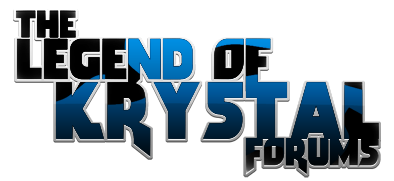http://www.d20pfsrd.com/EDIT:
As for what's wrong with 4th edition... those of us who are used to earlier editions mostly take offense at the streamlining of class builds, leveling, and magic item collection. It seems as though the system was designed to fit the model of a video game, with upgrades at regular intervals and not too much thought put into the progression of one's character (you follow path A or B or C, as opposed to a myriad of multi-class combinations or prestige class builds to select). The gameplay seems to place battle and ordinary roleplay in separate spaces, which is another quality of video games. In a video game, you have your plot-progression time, and your battles that interrupt it but help you level, and each space uses different mechanics (eg. you can't use a Phoenix Down to save Aeris from getting killed by the plot). The same thing seems to happen in 4th edition D&D, in that encounters are their own separate hermetically sealed situations that have nothing to do with the rest of your roleplaying experience. In an encounter, you have an enumerated set of options to pick from, and once the battle is over you're free to say and do whatever is in character. It's like you're having a conversation, and someone rushes at you with a weapon, and everything fades into BATTLE MODE, and you pick which attack option you're going to use.
So whether or not it was the intention (I think it is), it seems that 4th edition D&D is set up very much like a J-RPG or an MMO. The other problem I have is that of race selection. Because of the way they've set up ability scores, there's a powerful incentive to select a race that agrees with the class build you want to take. For example, if you want to be an archery ranger (maximizing dex and wis), you have to be an elf, shifter, or githzerai, so you get bonuses to those stats. If you want to be a cunning bard (maximizing cha and int), you have to be a gnome or a tiefling. That kind of restriction has two effects: One, it makes certain builds impractical, such as a dwarf fighter or an elf warlock (nothing stops you from making one, but it's going to be underpowered). Two, it makes your typical party full of different player races, so that the setting seems like some ridiculous melting pot. There are no human kingdoms, elven traditions, dwarven mines, orcish tribes, just a mess of goliaths, eladrin, drow, githyanki, warforged, gnomes, shifters, dragonborn, blah blah blah. It's the same problem that Forgotten Realms had, where there's just too much crap going on for a concise storyline to form. No single person can fit it all into a coherent world without conveniently ignoring parts of it (Star Wars had this problem, but to a lesser extent. They focused on humans for reasons of costume budget, and it ended up helping them, dramatically).
Anyways, Pathfinder provides a multitude of race and class options (most of the races labeled as "unusual"), but it seems to me that there's more flexibility in what you choose. Your attack success is not dependent on having 18 instead of 16 in a given stat, and so there isn't as much pressure to follow a prescribed build path. You can mix and match class levels to have more control over your abilities and progression, and you aren't pidgeon-holed into a "role" (striker, defender, controller, leader), but can decide your character's identity in-game by figuring out what works and what doesn't. Instead of saying, "Oh, we need a defender, you should make a paladin or fighter or warden", you say, "Our current party isn't well prepared for surprise attacks, so someone with high AC and full BAB would be useful to distract enemies away from our spellcasters".
So that's my beef with 4E.



